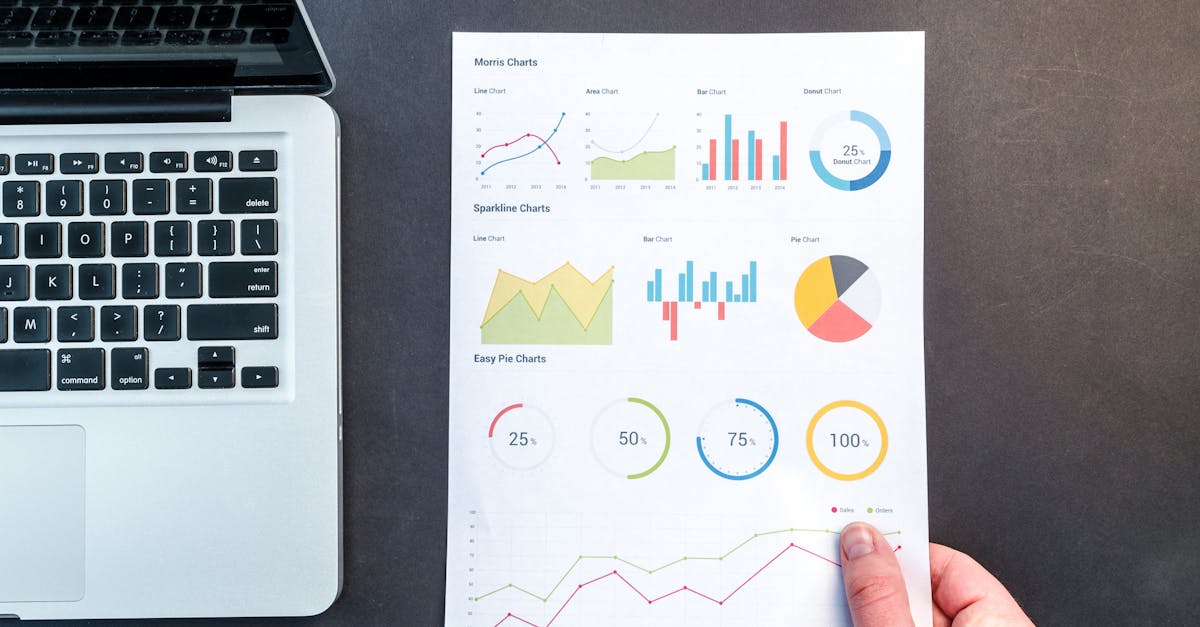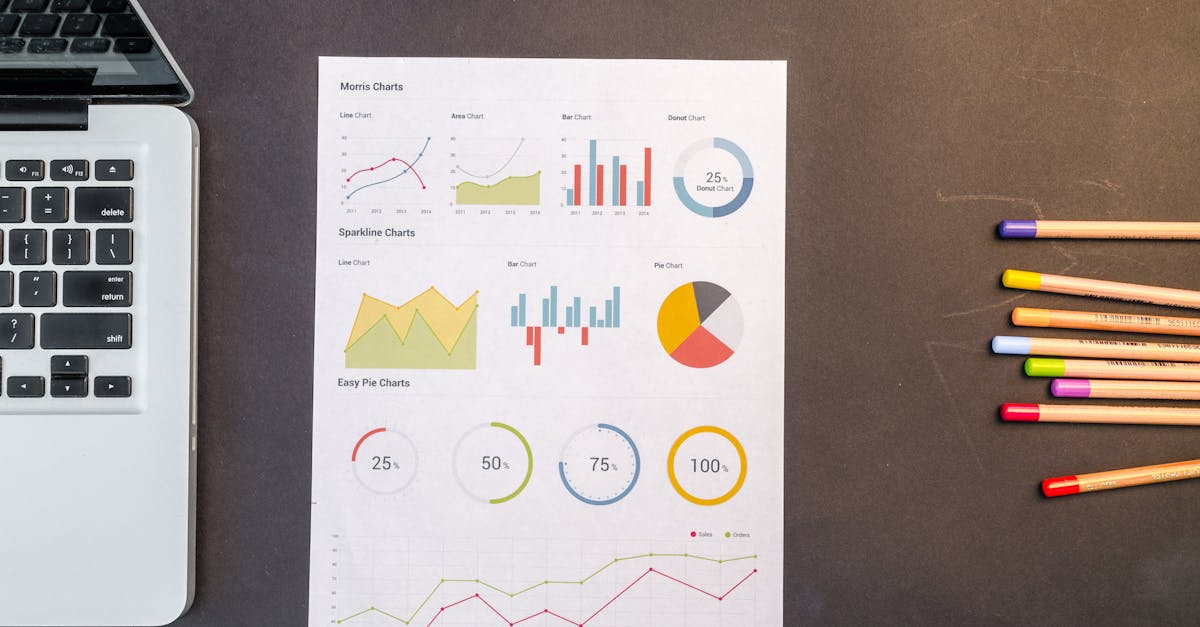
Table Of Contents
The Role of Data in Reporting and Analytics
Data serves as the foundation for Analytics and Reporting, enabling organisations to extract valuable insights from raw information. Accurate and relevant data forms the backbone of any effective reporting system. Without high-quality data, the analytics process can lead to misleading conclusions and poor business decisions. Collecting, processing, and maintaining data integrity is essential for achieving reliable outcomes in these fields.
In the realm of Analytics and Reporting, data is not merely a collection of numbers or statistics. It encompasses various dimensions, including historical and real-time data sourced from multiple channels. The ability to analyse this data effectively allows companies to identify trends, monitor performance, and optimise operations. Such analysis provides a clearer picture of organisational health and supports strategic planning initiatives.
Importance of Data Quality and Relevance
Data quality and relevance play a crucial role in the effectiveness of Analytics and Reporting. High-quality data ensures that the insights generated are accurate and dependable. Inaccurate or outdated information can lead to misguided decisions, which may negatively impact an organisation's strategy and performance. Relevance is equally vital, as data that is not essential to the current business objectives can unnecessarily complicate analysis and obscure key findings.
Organisations must prioritise the collection and utilisation of data that aligns with their specific goals. This focus enables analytics teams to create relevant reports that provide meaningful insights for decision-makers. By maintaining high data quality and ensuring its relevance, businesses can enhance their analytics capabilities, leading to better-informed strategies and improved outcomes. Ultimately, the reliability of Analytics and Reporting hinges on the strength of the underlying data, making these elements pivotal in any data-driven decision-making process.
The Role of Data in Business Intelligence
Data plays a pivotal role in business intelligence, serving as the foundation for generating insights that drive strategic decisions. Businesses leverage analytics and reporting to extract valuable information from vast datasets, helping them identify patterns, trends, and anomalies. This not only enhances understanding but also supports forecasting efforts, enabling organisations to anticipate market changes and respond accordingly.
Effective business intelligence relies heavily on accurate data integration and presentation. By consolidating information from various sources, companies can create a comprehensive view of their operations. Analytics and reporting tools visualise this data, making it more accessible and interpretable. Such visual representations facilitate quicker decision-making and foster a data-driven culture within the organisation.
Data Integration and Visualization
Data integration is a critical component for effective analytics and reporting. It involves consolidating data from various sources to create a unified view, allowing organisations to derive meaningful insights. By ensuring that different datasets work together seamlessly, businesses can avoid inconsistencies and inaccuracies that may arise from using siloed information. This process not only enhances the quality of the analysis but also facilitates a more comprehensive understanding of business performance.
Visualisation plays a crucial role in transforming complex data sets into accessible and understandable formats. Through charts, graphs, and dashboards, analytics and reporting become more intuitive, enabling stakeholders to quickly grasp key trends and patterns. Effective visualisation helps in communicating insights clearly, making it easier for decision-makers to interpret data and act upon it. The power of visual tools lies in their ability to present information in a way that highlights important findings, ultimately supporting more informed business choices.
Benefits of Reporting and Analytics
Reporting and analytics serve as crucial tools for organisations aiming to enhance their operational efficiency and decision-making capabilities. By enabling businesses to gather, analyse, and interpret data, they provide insights into performance metrics and trends. This process not only helps in identifying areas for improvement but also allows organisations to respond swiftly to changing market conditions. The insights gained through analytics and reporting foster a data-driven culture, empowering teams to base their strategies on concrete evidence rather than intuition alone.
Furthermore, the benefits of analytics and reporting extend to improving customer understanding and satisfaction. By analysing patterns and behaviours, companies can tailor their offerings to meet the specific needs of their target audience. This approach not only increases customer retention but also cultivates loyalty, ultimately driving sales growth. Integrating analytics and reporting into the organisational framework promotes a proactive stance, equipping businesses to make informed decisions that align with their long-term objectives.
Enhancing DecisionMaking Processes
Analytics and Reporting play a crucial role in enhancing decision-making processes across various industries. By providing clear insights derived from data, organisations can identify trends, spot opportunities, and mitigate risks more effectively. The timely and accurate information delivered through reporting enables decision-makers to evaluate options and make informed choices that align with their strategic objectives. This process not only improves operational efficiency but also fosters a culture of data-driven decision-making within the organisation.
When teams leverage Analytics and Reporting, they enhance their ability to respond to changes in the marketplace swiftly. The combination of historical data analysis with current performance metrics allows for a comprehensive view of business operations. As a result, organisations can adapt strategies in real-time based on factual evidence, leading to improved outcomes and a competitive advantage. This ongoing cycle of assessment and adjustment is vital for sustaining growth and achieving organisational goals.
FAQS
What is the main difference between reporting, analytics, and business intelligence?
Reporting and analytics focus on presenting and analysing data to derive insights, while business intelligence encompasses a broader range of tools and processes that include data collection, integration, and visualisation, aiming to support strategic decision-making.
Why is data quality important in reporting and analytics?
Data quality is crucial because accurate and relevant data ensures that the insights derived are trustworthy and can lead to informed decision-making, ultimately impacting business outcomes.
How does data integration play a role in business intelligence?
Data integration allows for the consolidation of data from various sources, providing a comprehensive view that enhances analysis and reporting, which is essential for effective business intelligence strategies.
Can reporting and analytics improve decision-making processes?
Yes, reporting and analytics can significantly enhance decision-making processes by providing clear insights and visualisations that help stakeholders understand trends, patterns, and anomalies in the data.
Is it necessary to have advanced tools for effective business intelligence?
While advanced tools can enhance capabilities, effective business intelligence can also be achieved with the right strategies and data practices, focusing on user needs and ensuring data quality and relevance.

















































